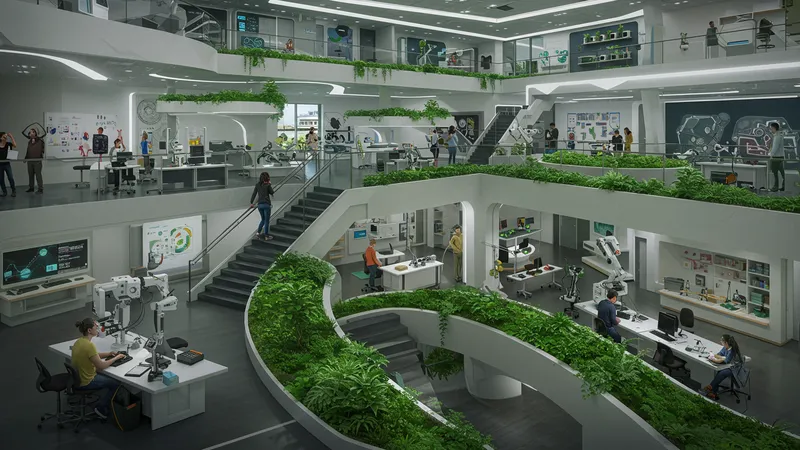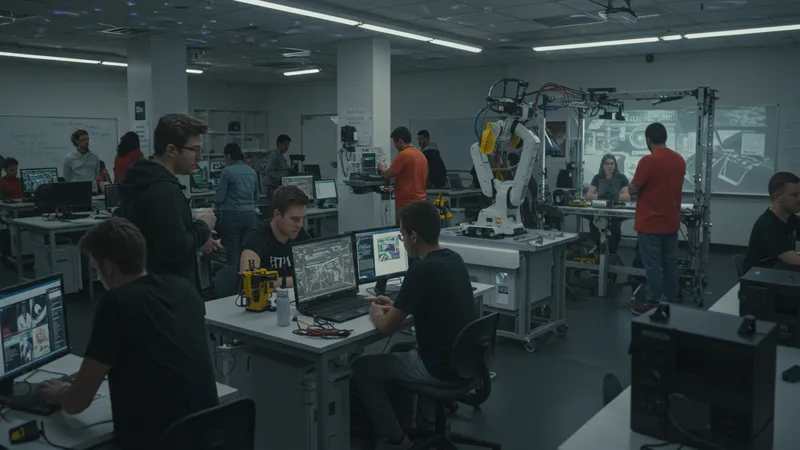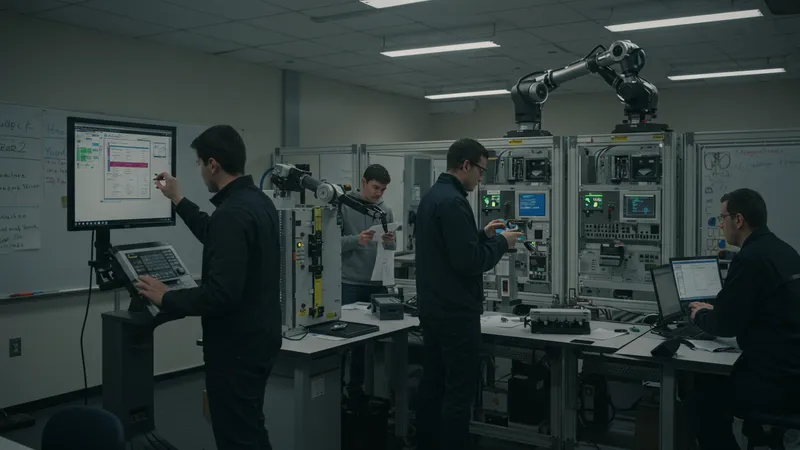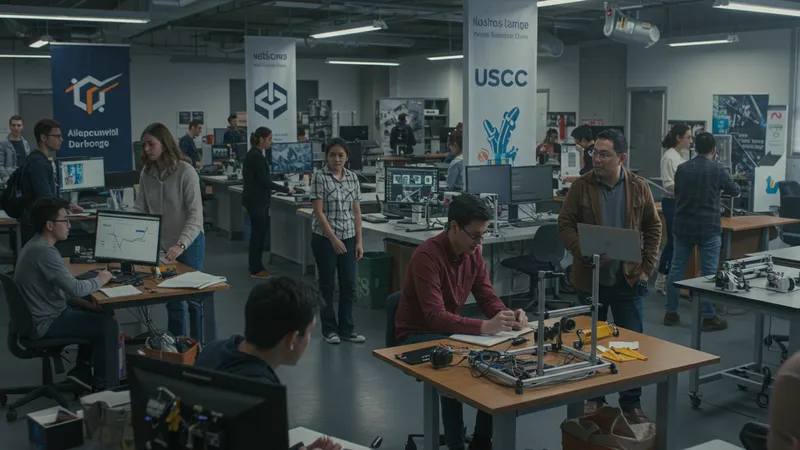

Imagine campuses designed not just to teach traditional subjects, but to actively prepare learners for the evolving industries of tomorrow. These specialized educational environments are structured around hands-on, real-world training in skills that are increasingly demanded by shifting markets—think advanced manufacturing, digital arts, green tech, robotics, and skilled trades. Rather than existing as typical classroom-based institutions, these spaces bridge the gap between education and the workforce, fostering both technical expertise and essential workplace abilities in a collaborative setting.
What sets these modern campuses apart is their focus on agility and practical learning. Curricula are constantly updated to reflect the latest industry standards and technologies, instructors often have direct experience in their respective fields, and strong partnerships exist with local businesses and industry leaders. This model ensures students are not only exposed to theory, but also ready to contribute to fast-changing sectors right after graduation.

These campuses stand out because they blur the traditional boundary between education and the workplace. Students interact with real tools and scenarios—robotics arms, programmable logic controllers, digital fabrication machines—gaining proficiency long before facing actual workplace challenges. This approach also addresses skill shortages and helps industries source talent ready for immediate contribution.
Key benefits include accelerated learning pathways, regular exposure to employers, and the cultivation of both “hard” technical and “soft” collaboration skills. For example, P-TECH’s integrated program lets students earn a high school diploma and an associate degree simultaneously. Working alongside mentors, learners gradually build their confidence in handling workplace-level projects.
Compared to conventional education models, these campuses are highly adaptable. Facility layouts resemble modern workplaces, fostering a culture of teamwork and innovation. Feedback from industry partners directly shapes curriculum updates, and access to cutting-edge technology is routine—not a special privilege for advanced students.
Globally, companies and training organizations are recognizing the impact. Festo Learning Centers equip thousands of learners with up-to-date automation skills, while the National Safety Council’s centers focus on industry standards for workplace safety—both crucial needs in the digital and industrial landscapes ahead. Each example demonstrates how strategic partnerships and future-focused design underpin these innovative campuses.
The deeper details reveal even more valuable insights ahead, particularly about how such campuses build essential skills, adapt to technology advances, and foster lasting career growth…
At the core of these forward-looking campuses is a commitment to skills that go beyond textbooks or online modules. Programs immerse learners in environments closely aligned with industry needs, emphasizing project-based work, team challenges, and scenario-based learning. Students gain expertise using industry-standard tools—ranging from robotics systems at Festo Learning Centers to safety simulations at National Safety Council facilities. This immersive approach not only enhances technical aptitude, but also builds resilience and practical problem-solving skills for tomorrow’s workforce.

Team-based activities are another hallmark of these campuses. Students commonly collaborate on real projects with clear goals and deadlines, just as they would on the job. For example, P-TECH students work with industry mentors to solve genuine business challenges, honing both their communication and analytical abilities. Such experiences directly prepare students for the collaborative, multidisciplinary nature of modern workplaces.
One unique advantage is the direct interaction with current technology. Festo Learning Centers, for instance, provide hands-on access to smart sensors, interconnected automation systems, and industrial software platforms. This exposure ensures that learners become comfortable with tools currently in use across manufacturing and engineering fields, making the transition to the workforce seamless and confident.
Influential global surveys highlight a strong correlation between hands-on vocational training and long-term employment rates. Graduates from these skill-focused campuses often report higher satisfaction and faster career progression, in part due to their foundational understanding of workplace realities and employer expectations. This strengths-based preparation is a predictive edge for future talent pipelines.
Vocational and skill development campuses remain relevant through a commitment to continuous curriculum innovation. Instructors, industry partners, and academic designers regularly review learning modules to ensure alignment with the latest trends. For example, P-TECH frequently updates its degree requirements in collaboration with technology companies, inserting new modules on cybersecurity or data science as industries evolve. This agile model guarantees that graduates are trained not on yesterday’s knowledge, but on emerging best practices.

The integration of advanced technology is another core feature. Festo Learning Centers are renowned for equipping classrooms with the very same programmable logic controllers, sensors, and robotics arms used in leading factories. This investment significantly reduces the “job-readiness gap” seen with more traditional schooling, enabling students to demonstrate industry-level competency from day one.
Digital platforms also play a growing role. Many centers now offer hybrid learning models—combining hands-on workshops with virtual labs and simulations. National Safety Council Training Centers, for instance, provide VR-based hazard recognition tools that supplement in-person safety instruction, helping learners grasp complex scenarios in a risk-free, immersive setting.
Such adaptations reflect broader trends in workforce development. As workplace automation increases and sustainability demands grow, these campuses are ideally positioned to pivot quickly—offering targeted micro-credentials or badges, training modules for new equipment, and flexible learning arrangements to match shifting career landscapes.
Integral to the future-focused mission of these campuses are robust partnerships with industry. Collaboration extends well beyond course content, shaping internship pipelines, mentorship programs, and job-shadowing experiences. For instance, P-TECH’s ongoing alliances with tech giants and local corporations give learners privileged access to guidance from professionals, early exposure to corporate culture, and sometimes even guaranteed interviews after graduation.

Festo Learning Centers have established networks with manufacturers and automation vendors, enabling trainees to collaborate on joint research projects or prototype development. These partnerships often lead to opportunities for learners to showcase their skills to potential employers during campus-hosted events and competitions. The real-world feedback loop ensures that the curriculum remains sharply relevant.
Additionally, National Safety Council Training Centers work directly with companies to address sector-specific safety needs. This can include custom workshops for fields such as logistics, warehousing, or energy, leveraging real accident data to build more effective training scenarios. Such client-focused customization distinguishes these campuses from more static, generic training options.
Ultimately, sustained industry involvement means that campuses act as bridges, not barriers, between education and the workforce. Students become fluent in the languages, practices, and cultures of their target sectors, developing lasting relationships with mentors and forming networks that support successful, adaptable career paths.
Graduates of next-generation vocational and skill development campuses enjoy a trajectory shaped by robust preparation and adaptability. Rather than being locked into narrow specializations, these learners possess a toolkit of transferable skills—critical thinking, collaboration, problem-solving—that allows them to move fluidly across sectors as technological change accelerates.
Employers increasingly recognize the distinct value of such training. Analytical reports from manufacturing, tech, and construction sectors all point to higher job retention and satisfaction among those who trained through hands-on, industry-integrated programs. The hybrid approach—combining technical expertise with soft skills—creates team members who adapt smoothly to new systems and foster innovation.
As global workforce needs continue to shift, these campuses are poised to play a pivotal role in economic growth and community development. They support not just students, but also upskill existing workers, reskill those transitioning from declining industries, and encourage lifelong learning through modular, industry-relevant courses. The model is scalable and responsive, capable of addressing both immediate and long-term sectoral demands.
Looking ahead, the future of workforce preparation lies in deep, genuine collaboration between educators, technology, and industry. Vocational and skill development campuses, through their commitment to current relevance and real outcomes, stand as showpieces of what innovative, future-ready education can achieve for learners and employers alike.